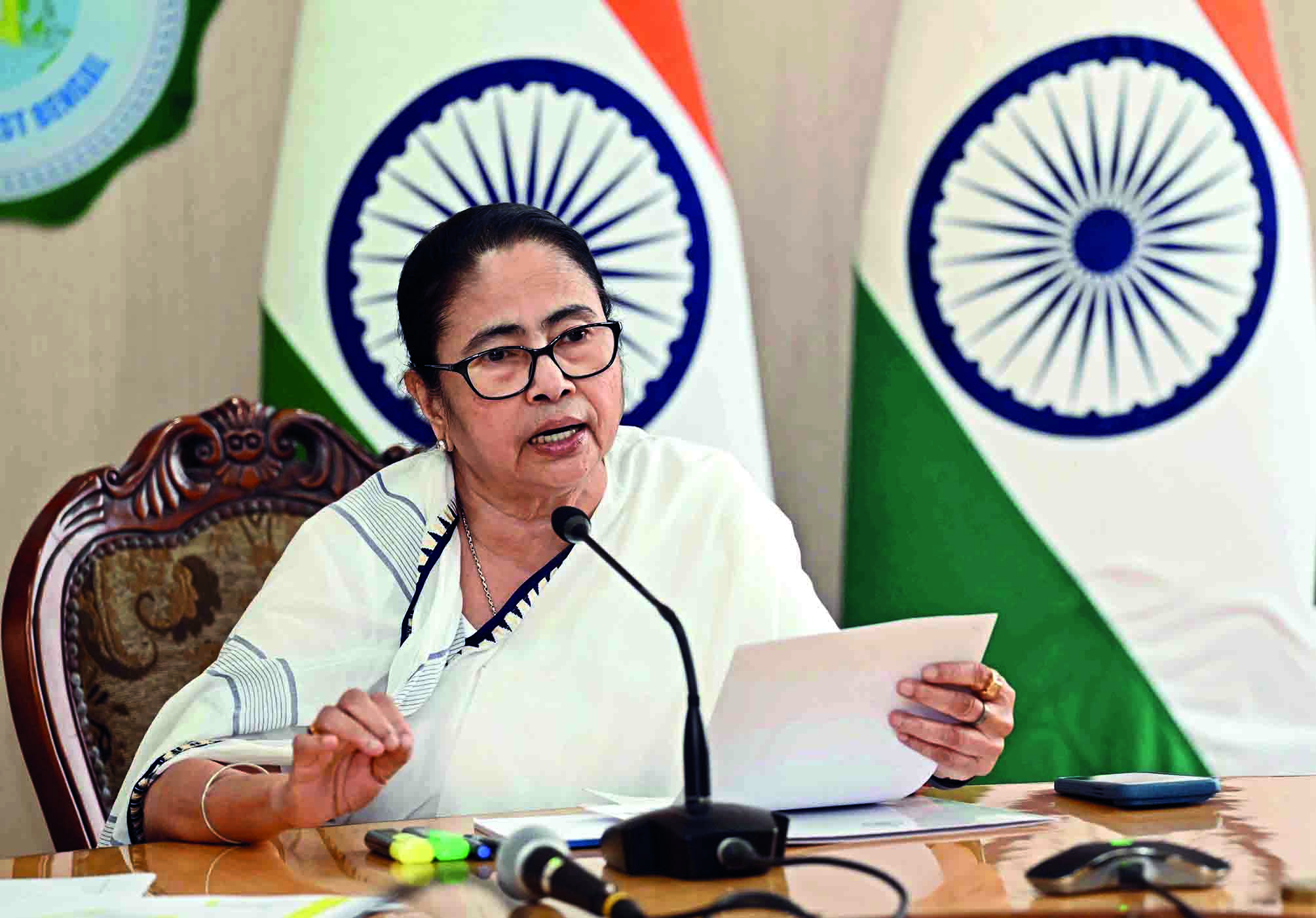Mamata writes to ‘One Nation, One Election’ panel, expresses disapproval

Kolkata: Disagreeing with the concept of holding simultaneous elections for the Lok Sabha and state Assemblies, Trinamool Congress chairperson Mamata Banerjee, on Thursday, wrote to the high-level committee on ‘One Nation, One Election’, stating that the step will undermine the basic structure of India’s constitutional arrangements.
The panel had sought suggestions from the TMC regarding ‘One Nation One Election’ and the last date for response was on January 14. In a letter to Dr Niten Chandra, the secretary of the panel led by former president Ram Nath Kovind, Banerjee mainly pointed out two key issues - the constitutional and structural problems with the term “one nation,” and the timing of Parliamentary and Assembly elections, especially when the current election cycles have a large gap between them. She also questioned the composition of the committee in the backdrop of no chief ministers taken on board.
She wrote: “From the tenor of your correspondence and manner in which you accept half-baked assumptions as facts, we doubt if the committee is seriously interested in analysing the demerits of the case.”
Banerjee wrote: “With profound considerations, the Constituent Assembly of India has presented us with a Parliamentary/ Cabinet system of government, keeping in view the diversities and pluralities of our great country. But now your design seems to be to tilt the system in favour of Presidentialisation. The design is kept covert, seemingly because autocracy wants a democratic garb now to enter the national public arena. I am against autocracy and hence, I am against your design.”
She noted that in 1952 the first general elections were simultaneously conducted for the Central and state levels. “There was such simultaneity for some years. But the coevality has since been ruptured. Owing to a series of historical developments, different states have different election calendars now, and those calendars are also susceptible to changes due to potential (and often unforeseen) political developments. It is not clear how this basic issue of introduction of coevality will be addressed by your esteemed committee. States which are not expecting general Vidhan Sabha elections should not be forced to go for premature general elections for the same of coevality only: that will be basic violation of the electoral trust of the people who have elected their Vidhan Sabha representatives for full five years.” Banerjee’s letter read. She asserted that non-simultaneous Lok Sabha and state elections are a fundamental aspect of the Westminster parliamentary system adopted in India, and should not be altered.
“During the last 50 years, Lok Sabha has witnessed several premature dissolutions, the reason being that no political dispensation could secure a stable majority in the House. In such a situation fresh elections is the only option when the cycle of simultaneous elections would be snapped or else all the states would have to go for premature elections although enjoying majority support. The same situation would also arise in a case of premature dissolution of any one of the state assemblies…” her letter highlighted.



